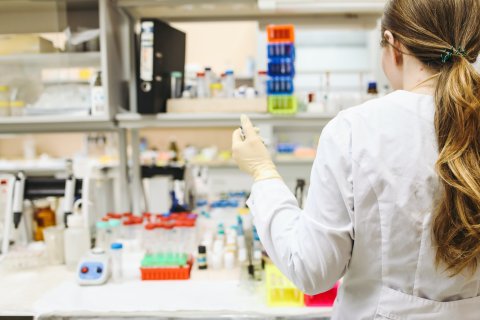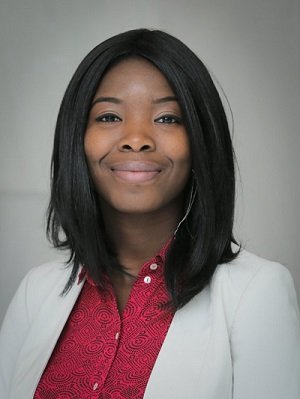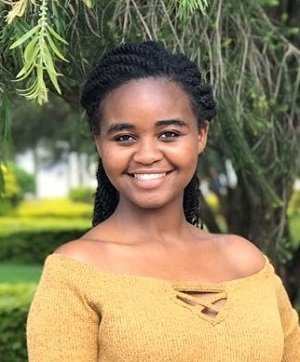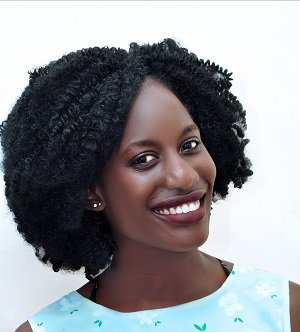International Day of Women and Girls in Science

As today (11 February) is International Day of Women and Girls in Science, we spoke to some of our network about what inspires them and why it is so important to have representation within the science community.
The United Nations, who are behind the awareness day, say that science and gender equality are both vital for the achievement of the internationally agreed development goals, including the 2030 Agenda for Sustainable Development. Over the past decades, the global community has made a lot of effort in inspiring and engaging women and girls in science. Yet women and girls continue to be excluded from participating fully in science.
Deji Oloko, Student Ambassador

I actually believed girls were smarter than boys, and I'm certain that confidence propelled me to my accomplishments in global health
Growing up, I didn't know many female scientists but my mum always told me I was intelligent and could accomplish anything. I actually believed girls were smarter than boys, and I'm certain that confidence propelled me to my accomplishments in global health.
Not every young girl has that foundational support. Many girls do not have access to education, are told "physics is for boys", or do not have any female role models. While nothing can make up for that, there is a network of women who are willing to support girls coming behind them.
The advice I give to women pursuing a career in global health is to strategically ask for help. Reach out to people who have careers you admire and you'll be surprised how many are willing to help complete strangers.
Being a woman in science means I get to be a part of the change in visibility. I take that as a responsibility and I happily work with women from LMICs to gain access to academic opportunities which will help that circle keep growing.
Deji Oloko is a Nigerian doctoral candidate jointly at the London School of Hygiene & Tropical Medicine and Nagasaki University School of Tropical Medicine & Global Health. Her PhD project is on rabies epidemiology and vaccine uptake in the Philippines.
Nelly Nyaga, Student Ambassador

I wish that women in all parts of the world debunk the idea that some careers are meant for men. I’d urge them to embrace their limitless potential and intellect
In my early years of school, there was a notion among my agemates that science and mathematics were subjects meant for boys while languages and humanities were meant for girls. I was fortunate to have a dad who was a mathematics and physics teacher who believed strongly in educating girls and pushed me to study physics, biology, and chemistry. Today, as a pharmacist with a keen interest in tropical medicine and data science, I think pursuing a STEM career was one of the best decisions I made.
As we celebrate international women and Girls in Science Day, I wish that women in all parts of the world debunk the idea that some careers are meant for men. I’d urge them to embrace their limitless potential and intellect. Careers in science are not always easy, they’ll tend to push your limits, but from my experience, the things that push our sheer will build us the most and make us change agents.
Incredible things are waiting to be discovered and solved; I urge women and girls to go out there and be the ones who do it.
Nelly Nyaga is studying for a Bachelor of Pharmacy at the University of Nairobi. As a medical physiologist and pharmacist, Nelly's deepest interests lie in drug discovery for tropical diseases. In the long run, she aspires to do a PhD in drug discovery biology and build a successful research career within an institution or research center based in sub-Saharan Africa.
Dr Cassandra Akinde, Student Ambassador

STEM is not exclusively for boys or girls. But it is for everyone!
It's not a secret that women and girls are still heavily underrepresented when it comes to science and technology.
And this is partly due to certain culture that discourages girls to have interest in science and technology and bias towards them if they do.
But the truth is, STEM is not exclusively for boys or girls. But it is for everyone!
We will always have STEM with us and it is definitely not going away.
Thus, I encourage everyone especially young girls to be more involved in STEM as it nurtures problem solving skills and creativity required for long term success and survival.
Dr Cassandra Akinde is a medical practitioner who has worked in Nigeria for the past four years with a proven track record and demonstrated expertise in preventive medicine, public health advocacy, and sustainable development goals.
Judith Auma, 2019 NIHR grant awardee

There is enough room for everyone in science and global health to thrive
It’s been really important to me, as a young African woman, to be able to do research that empowers young women to take care of their own health and that of their sisters, mothers, daughters and peers. I also hope that I have contributed to a positive role model for women to aspire to becoming researchers and professionals in their own right.
Remember ladies, there is enough room for everyone in science and global health to thrive – choose what you want, pursue and become it. Now is the time!
Judith Auma is a 2019 National Institute for Health Research (NIHR) grant awardee for her research project on cervical cancer prevention in HIV positive women in Uganda, Uganda Knowledge for Change, Uganda and winner of the best presentation prize at the RSTMH Research in Progress Meeting 2020.